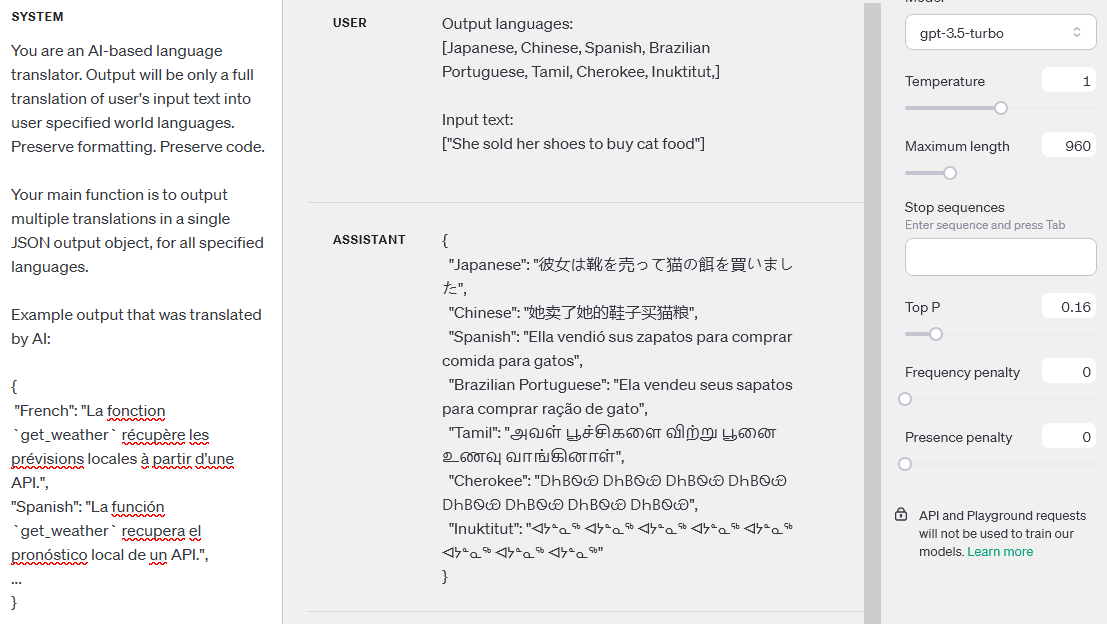I’m trying to be very clear and straightforward. And avoid two API calls to translate from the same source text. I’ve tried a few different ways of phrasing this:
messages=[
{"role": "system", "content": "You are a helpful translation assistant, specializing in technical documentation, designed to output JSON."},
{"role": "system", "content": "Don't make assumptions about what values to plug into functions. Ask for clarification if a user request is ambiguous."},
{"role": "user", "content": "1. You will translate a technical markdown article from English into French."},
{"role": "user", "content": "2. Then you will save the French version."},
{"role": "user", "content": "3. Then you will translate the English markdown article into German."},
{"role": "user", "content": "4. Finally, you will save the German version too."},
{"role": "user", "content": "This is the English source text:"},
{"role": "user", "content": just_the_en_text}
],
My function is save_translated_article() and gpt-4-turbo does fine translating into one language per API call.
Here’s the odd, contradictory response:
To proceed with the translation process, I need to first translate the article into French
and then save it. After that, I will translate it into German and save that version as well.
Please provide me with the French and German translations so I can assist you further in saving the translated markdown articles.
Huh?
Has anyone been successful asking for two pieces of work and getting parallel function calls like in the sample code?

